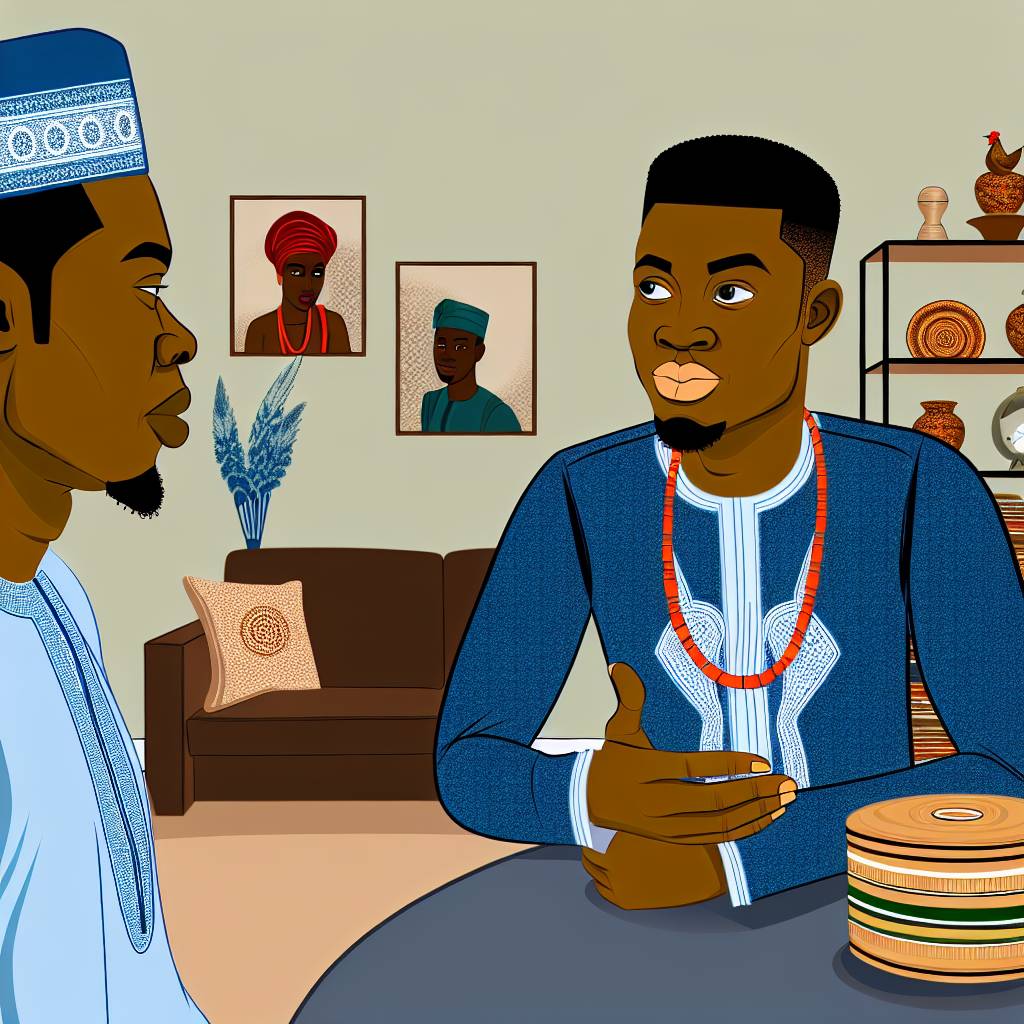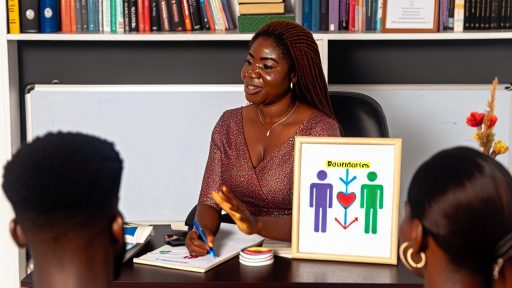Understanding the Importance of Cultural Awareness in Marriage
Defining Cultural Awareness
Cultural awareness involves recognizing and understanding the differences between cultures.
This understanding enhances communication and minimizes conflict.
Moreover, cultural awareness fosters appreciation for diverse perspectives.
Enhancing Communication
Effective communication is crucial in any relationship.
Cultural differences can lead to misunderstandings.
By being culturally aware, couples can express themselves more clearly.
This clarity helps in avoiding misinterpretations and assumptions.
Building Respect and Empathy
Respect is a cornerstone of a healthy marriage.
Cultural differences should not be dismissed but appreciated.
Showing empathy towards a partner’s cultural background fosters deeper bonds.
Empathy encourages partners to share their feelings and experiences.
Addressing Potential Conflicts
Conflict is inevitable in any relationship.
Cultural misunderstandings can escalate disagreements.
Cultural awareness provides tools to navigate these sensitive situations.
Moreover, recognizing differences can lead to constructive discussions.
Fostering Compromise
Compromise is essential in a multicultural marriage.
Understanding each other’s cultural perspectives allows for better negotiation.
Consequently, couples can find common ground that respects both cultures.
Encouraging Growth and Learning
Cultural awareness promotes continuous learning in a marriage.
Couples can teach each other about their respective traditions and values.
This exchange enriches their shared experiences and knowledge.
Furthermore, it encourages adaptability and open-mindedness.
The Role of Cultural Awareness in Strengthening Marital Partnerships
Cultural awareness plays a vital role in successful marriages.
It enhances communication, builds respect, and helps address conflicts.
Thus, embracing cultural differences leads to a stronger partnership.
Identifying Cultural Differences: Key Areas to Consider
Communication Styles
Different cultures have unique communication styles.
Some cultures emphasize directness.
Others prefer indirect approaches.
Observe how your partner communicates desires or frustrations.
Discuss and adapt to each other’s communication preferences.
Family Values
Family values often vary across cultures.
Understand your partner’s family expectations and responsibilities.
Acknowledge the role of family in decision-making processes.
Balancing these expectations enhances marital harmony.
Traditions and Celebrations
Cultural traditions shape how couples celebrate milestones.
Share your traditions with each other.
Incorporate both sets of traditions into your celebrations.
Respect differences and create new traditions together.
Gender Roles
Perceptions of gender roles can differ significantly.
Discuss your views on shared responsibilities at home.
Examine how these roles affect your relationship dynamic.
Finding common ground promotes equality and understanding.
Religious Beliefs
Religious beliefs often influence cultural practices.
Engage in open discussions about your beliefs.
Respect each other’s spiritual perspectives and practices.
Consider how religion impacts major life decisions.
Conflict Resolution
Different cultures approach conflict resolution differently.
Some prefer to confront issues directly.
Others avoid confrontation.
Identify your conflict resolution styles.
Compromise and adapt to find a solution that suits both partners.
Time Orientation
Time perceptions can vary greatly across cultures.
Some cultures value punctuality.
Others are more flexible with time.
Discuss your expectations regarding time management.
Aligning these expectations can reduce frustration.
Effective Communication Strategies for Bridging Cultural Gaps
Understanding Cultural Contexts
Recognize that cultural backgrounds influence communication styles.
This understanding fosters empathy and reduces misunderstandings.
Engage in open discussions about cultural differences with your partner.
Listening actively allows you to appreciate their perspective.
Developing Active Listening Skills
Practice active listening to enhance your communication.
Focus on your partner’s words without preparing your response too early.
This technique helps you grasp their emotions and thoughts more effectively.
Make sure to confirm your understanding by summarizing their points.
Utilizing Clear and Simple Language
Use clear language when discussing complex topics.
Avoid using idioms that may not translate culturally.
Consider your partner’s language proficiency when expressing ideas.
Be patient and willing to clarify when misunderstandings arise.
Establishing Common Ground
Find shared interests and values to strengthen your bond.
Discuss traditions and practices from both cultures together.
Collaborate on integrating these elements into your daily life.
This fosters unity and appreciation for each other’s backgrounds.
Encouraging Open Dialogue
Create a safe space for honest conversations about feelings.
Address cultural differences as opportunities for growth, not conflict.
Encourage your partner to express their needs and concerns openly.
Offer support and understanding in return for their honesty.
Embracing Differences as Strengths
View cultural differences as unique strengths in your relationship.
Celebrate diverse perspectives to enrich your marital experience.
This appreciation broadens your worldview and deepens your connection.
Engaging with your partner’s culture builds mutual respect.
Uncover the Details: How to Foster Emotional Intimacy in Nigerian Marriages
Respecting and Integrating Each Partner’s Cultural Traditions
Understanding Cultural Backgrounds
Every couple brings unique cultural backgrounds into their marriage.
Understanding each partner’s heritage fosters respect and appreciation.
Begin by openly discussing your cultural practices and beliefs.
Share stories about your upbringing and significant traditions.
Ask questions to gain insights into each other’s perspectives.
Creating a Shared Cultural Space
Create a space where both cultures can thrive together.
Celebrate traditions from both backgrounds during holidays.
Consider incorporating elements from each culture into your home.
For example, you might blend traditions during family gatherings.
Encourage respect and understanding for each other’s customs.
Managing Conflicts Arising from Cultural Differences
Conflicts may arise when cultural beliefs clash.
Approach these discussions with an open mind and heart.
Seek common ground rather than a strict compromise.
Utilize effective communication to express feelings and concerns.
For instance, practice active listening and validate each other’s emotions.
Enhancing Mutual Respect and Love
Respecting cultural differences strengthens your bond.
Show appreciation for your partner’s customs and traditions.
Participate in each other’s rituals and celebrations routinely.
By doing so, you foster a sense of unity and partnership.
Ultimately, your love will grow amidst these shared experiences.
Involving Family and Community
Invite family members to engage in your cultural exchanges.
Seek support from your community to enrich your marriage.
Attend cultural events together to deepen your understanding.
Moreover, learn from others’ experiences in multicultural marriages.
Creating an inclusive environment encourages acceptance among loved ones.
Discover More: How to Strengthen Your Marriage Through Open Communication
Navigating Family Expectations and Cultural Norms
Understanding Family Roles
Your family’s cultural background shapes their expectations in marriage.
Recognizing these roles helps in understanding their perspectives.
Each family has unique traditions that influence their values.
Take time to learn about these traditions to bridge gaps.
Communicating with Family
Open communication is vital in addressing family concerns.
Share your feelings and desires openly and respectfully.
Listen actively to your family members’ viewpoints.
Use “I” statements to express your thoughts without blaming others.
Setting Boundaries
Establish clear boundaries to protect your marriage from outside pressures.
Discuss these boundaries with your partner to ensure mutual agreement.
Respect each other’s family traditions while also balancing your own.
Compromise can lead to solutions that honor both cultures.
Celebrating Cultural Differences
Embrace the richness of diverse backgrounds in your relationship.
Plan celebrations that incorporate both cultures in your marriage.
Invite family members to participate, fostering understanding and respect.
Share stories and practices with each other to deepen your connection.
Finding Support Outside the Family
Consider counseling if family dynamics create tension in your marriage.
A mediator can facilitate conversations between you and your families.
Seek support from friends who understand the cultural differences.
Recognizing when to ask for help demonstrates strength and commitment.
Learn More: Marriage Communication Tips for Nigerian Couples with Busy Lives

Conflict Resolution: Managing Cultural Clashes in Marriage
Understanding Cultural Differences
Every culture has distinct values and beliefs.
These differences can lead to conflict in a marriage.
Recognizing these cultural aspects is essential.
For example, family roles vary significantly across cultures.
This variability can affect expectations within the marriage.
Effective Communication Strategies
Communication is the cornerstone of resolving cultural conflicts.
Begin by expressing your feelings and concerns openly.
Listen actively to your partner’s viewpoints.
Use “I” statements to convey your perspective without blaming.
Empathy plays a key role in understanding your partner’s experiences.
Finding Common Ground
Identify shared values and goals within your relationship.
Discuss how each culture contributes positively to your marriage.
Look for compromises that honor both backgrounds.
This approach creates a sense of partnership.
Celebrate cultural traditions together to strengthen your bond.
Seeking Guidance When Necessary
Sometimes, outside help may be beneficial.
Counselors can offer neutral perspectives on conflicts.
Look for experts skilled in multicultural relationships.
They can provide tools for effective conflict resolution.
Participating in group sessions can also be enriching.
Viewing Conflict as an Opportunity for Growth
View conflicts as opportunities for personal and relational growth.
Challenges can deepen your understanding of each other.
Work collaboratively to address and resolve issues.
This process fosters resilience in your marriage.
Ultimately, embracing differences can strengthen your bond.
Find Out More: The Importance of Patience in Nigerian Marriages
The Role of Education and Continuous Learning in Multicultural Relationships
Understanding Different Cultures
Education plays a critical role in understanding diverse cultures.
It helps partners appreciate each other’s backgrounds and traditions.
Through continuous learning, couples can break down cultural barriers.
Moreover, learning about different customs fosters respect and understanding.
Effective Communication Strategies
Communication is essential in any marriage, especially in multicultural ones.
Being open to learning new languages can bridge gaps between partners.
Active listening encourages understanding and connection.
Additionally, expressing curiosity about a partner’s culture enhances communication.
Engaging in Cultural Activities
Participating in cultural activities can deepen understanding.
Couples should explore each other’s cultural practices together.
Cooking traditional meals can be a fun and informative activity.
Attending cultural festivals fosters a sense of community.
Overcoming Challenges through Education
Continuous learning equips couples to address cultural differences.
It helps in navigating misunderstandings that may arise.
Couples can seek workshops or counseling focused on multicultural issues.
Moreover, reading books on cultural dynamics can provide insights.
Building a Supportive Network
A supportive network can enhance educational experiences in multicultural marriages.
Connecting with other intercultural couples can offer valuable perspectives.
Support groups can create a safe space to share experiences.
Furthermore, online forums can provide additional resources and advice.
Celebrating Diversity: Ways to Honor Both Cultures in Your Marriage
Embrace Cultural Traditions
Start by identifying key cultural traditions from both backgrounds.
Discuss which traditions resonate with both partners.
Celebrate holidays from each culture together.
Consider blending traditions for unique celebrations.
Invite family members to share their cultural practices.
Practice Open Communication
Establish regular discussions about cultural differences.
Encourage each other to express thoughts and feelings.
Practice active listening to understand each perspective.
Ask questions to clarify misunderstandings or assumptions.
Maintain a supportive environment for open dialogue.
Explore Culinary Traditions
Cook traditional dishes from each culture together.
Take turns choosing the menu for special occasions.
Attend cooking classes to learn new culinary skills.
Share recipes with each other to keep traditions alive.
Incorporate elements from both cultures into new recipes.
Integrate Language Learning
Commit to learning each other's languages.
Practice speaking at home to reinforce learning.
Use language apps or classes for structured growth.
Encourage each other with patience and positivity.
Attend cultural events to practice in real-life settings.
Acknowledge and Respect Differences
Recognize that differences enhance your relationship.
Understand the significance of cultural backgrounds.
Respect each partner's traditions and viewpoints.
Seek to find common ground whenever possible.
Be open to adapting customs to build a shared identity.
Additional Resources
Guidance for how to navigate Nigerian ‘in laws’ : r/Christianmarriage




